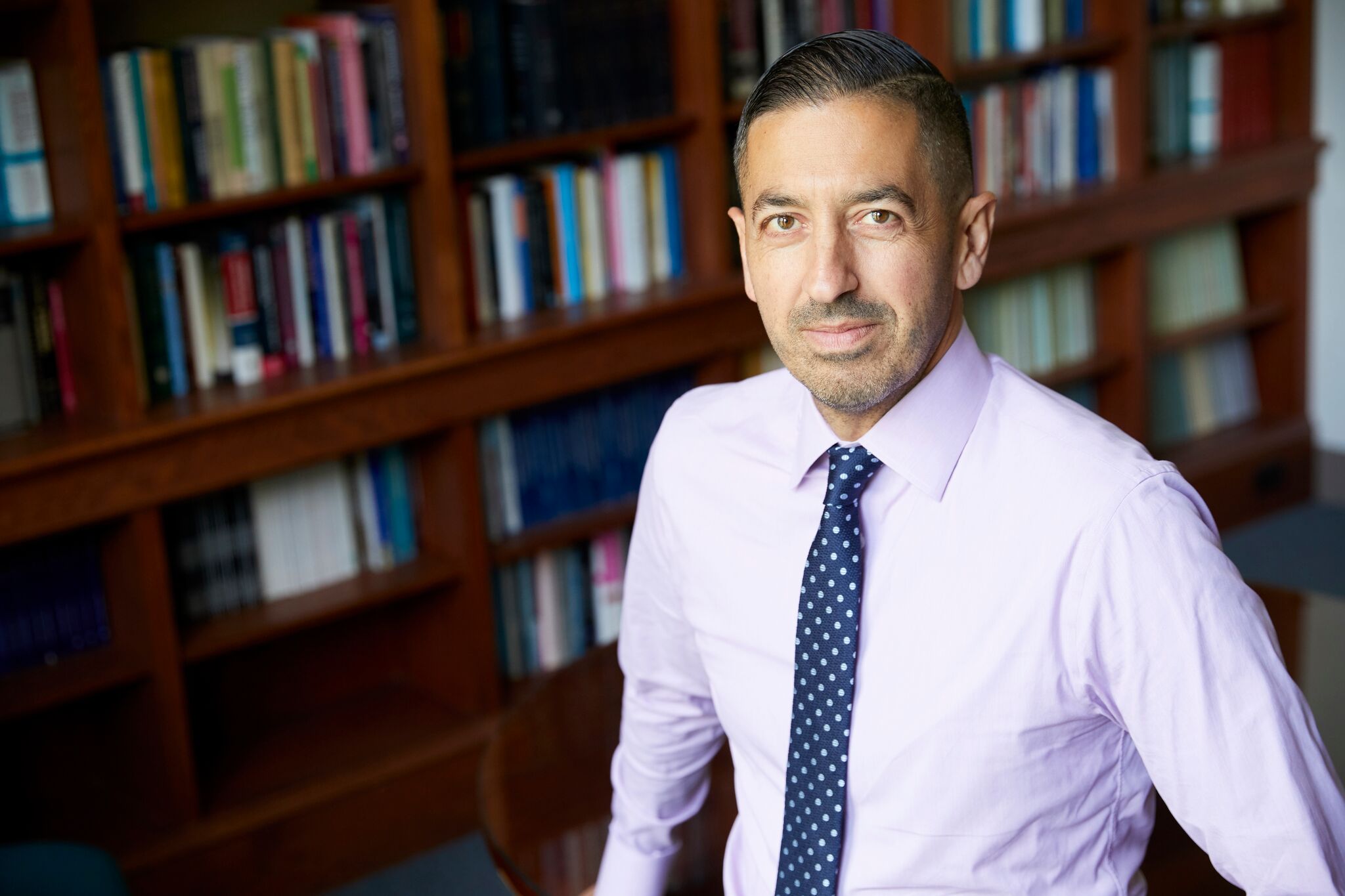Overnight, the first Covid-19 vaccines in a Western country delivered outside a clinical trial were given to patients in the UK. Today, we can say, to paraphrase a former British Prime Minister, that we are at the beginning of the end of the Covid-19 pandemic.
In the months since the emergence of Covid-19, the world has been through some previously unimaginable changes. We have changed how we work, live, and play. Stay-at-home orders and guidance, and fear of the virus, have restricted where we can go and what we can do, the crisis seeming to stretch indefinitely. We are still very much in the thick of this challenge. Cases and deaths continue to rise and the indications are that this winter will be a hard one. However, as we end 2020, all signs suggest that this moment will, too, pass, that the time is coming when the Covid-19 pandemic will be a matter of historical record rather than daily struggle. The development of safe and effective vaccines and the efforts currently underway to widely distribute them mark a moment when we can finally say that the pandemic not only will not last forever, but that it will likely not even last until the end of summer. At the same time, the incoming Biden administration represents a chance for a political reset, an opportunity to navigate the end of the pandemic in a way that rejects counterproductive approaches and lays the foundations for a healthier world.
Now, with the pandemic’s end in sight, it is time to look ahead, to take the long view, to address present challenges while creating the basis for a healthier world post-Covid-19. The current situation demands decisive action to mitigate the near-term effects of the virus, as we work towards a vaccine-supported end of the pandemic, and the Biden-Harris plan to beat Covid-19 offers much that is encouraging on this front. But, trusting that we will indeed overcome this pandemic in the coming months, can we also take the long view, address the forces that left us vulnerable to Covid-19 in the first place, and protect ourselves from future contagion?
I would argue we can and that four steps can help us do so.
Place equity at the heart of health.
This pandemic has highlighted the gap between who gets to be healthy in our society and who does not. It is a gap mediated by economic status, age, race, unemployment, and other factors that create pockets of marginalization. These, in turn, generate health gaps, such as the 10 to 15-year gap in life expectancy between the very rich and the very poor. These gaps have long been present, but this pandemic has caused us to focus on them in a new way. The virus has shown us how our health is linked, how the poor health of some can threaten the health of everyone. Addressing this disease has meant closing these health gaps by pursuing equity at the policy level. Early in the pandemic, I had the privilege of serving as co-chair of the Massachusetts Public Health Association’s Emergency Task Force on Coronavirus and Equity. We recommended that state lawmakers advance equity by ensuring immigrants could access testing and treatment for the disease, passing a moratorium on terminating public benefits, and ensuring the homeless have access to safe, dignified quarantine. These are a few steps that can help support health among marginalized groups during a pandemic. But they will help much more if we implement them in the long-term, if we build on these measures going forward, strengthening a network of policies that promote equity and health.
Invest in robust, responsive health systems.
From the anti-vaccine movement to climate change denial, it has not been uncommon in recent years to hear scientific conclusions questioned or dismissed outright. This has had political consequences, leading to a disinvestment in the science-based polices and organizations meant to keep us healthy. The Trump administration, for example, has cut key public health programs, including disease security programs designed to support health during pandemics. At the same time, lack of universal health care in the US has meant that not everyone was able to get needed treatment in the difficult months of the pandemic. Now that we have mobilized to build the structures necessary to carry us through Covid-19, we should not return to the pre-crisis status quo. We need to keep these structures in place, insisting that our political leaders shore them up, not tear them down. This means investing in public health infrastructure, funding organizations that plan for the emergence of novel outbreaks, adopting a system of universal health care, and listening to what science has to say.
Strengthen the social safety net.
Last March, Congress passed a $2 trillion-dollar stimulus which provided cash assistance to Americans to help them stay afloat during this pandemic. It is notable that, in our polarized age, the bill received broad bipartisan support. This support is especially striking when it is compared with the 2009 stimulus, which received not a single Republican vote in the House. This changed partisan dynamic reflects the scale of the Covid-19 crisis, the power of health to motivate large-scale action, and the acknowledged link between public health and material resources. We cannot be healthy without nutritious food, safer housing, quality education, health care access, and the peace of mind that comes with knowing we are not one crisis away from an empty bank account. For the Americans who lack access to these resources, the social safety net is a lifeline to some measure of stability and health. SNAP benefits, Medicare and Medicaid, and the Earned Income Tax Credit are some examples of the patchwork of laws and programs we have created over time to address the needs of vulnerable populations. Despite their importance, these programs are often targeted for cuts. Yet in a time of public health crisis, it took mere weeks for us to pass legislation putting resources in the hands of those who need them. We should strengthen this support by investing in existing programs and thinking creatively about how to expand their reach. For example, we could expand the Earned Income Tax Credit. This has been shown to net public health gains, especially for infants and mothers. Or, thinking bigger, the stimulus check Americans received to help them through Covid-19 could become the basis for a permanent basic income, of the type advocated by erstwhile presidential candidate Andrew Yang. Now that we have embraced such policies, however modestly, we could choose to see this embrace as a one-time crisis measure, or as the first step towards better long-term health.
Think differently about health.
We are thinking about health the wrong way. We tend to think about health exclusively in terms of doctors and medicines. But doctors and medicines can only treat us when we are sick. They can do little to keep us healthy. That is the lesson of the strain faced by health systems during Covid-19, as the burden of poor health overwhelmed treatment facilities. These health systems are supported by many of the world’s best doctors and nurses, and the most cutting-edge treatments. Yet in the face of the social, economic, and political forces that brought us the coronavirus in its unchecked form, it is all these systems could do just to keep up with the pace of poor health, much less address its roots. To engage with these foundational forces, we need to change how we think about health. Covid-19 has helped us to see that health is shaped by the world around us. We need only look at who is at greater risk of the disease to see how factors like income, race, immigration status, mass incarceration, how we care for our elders, the complex factors that drive obesity risk, and other large-scale forces are what decide whether or not we are healthy. Now that we see this, we should change our approach to health. The solution to Covid-19 is not just finding a vaccine, important as that is. It is working together in the realm of politics, at the community level, in schools and workplaces, in corporate policy, and in every other sector that helps to shape our collective lives. This is where health truly comes from. Rather than leave this space once we have concluded our Covid-19 response, we should plan to stay.
Covid-19 may have emerged from nature, but its global spread was overwhelmingly human-made. It came from our failure to address health at the level of fundamental causes, to listen to science, to invest in (or, at minimum, to not dismantle) the organizations meant to protect us from a pandemic. We must own these errors and avoid repeating them. The good news is that this is well within our capacity. In the midst of this crisis, there are opportunities to lay the groundwork for a healthier future, if we take the right steps now. We should do so, making this not just the start of a new year, but of a new era in our approach to health.
Sandro Galea, MD, DrPH, is Professor and Dean at the Boston University School of Public Health. His latest book is Pained: Uncomfortable conversations about the public’s health. Follow him on Twitter: @sandrogalea
This article originally appeared on Psychologytoday.com


